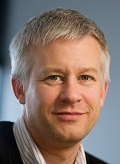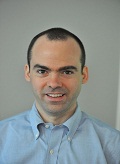ICAPS 2013 Invited Talks
- Alan Fern: New Modes of Human-Assisted Policy Learning, Wed, June 12, 9 am
- Wheeler Ruml: What Your Mama Didn’t Tell You About Heuristic Search, Wed, June 12, 9.40 am
- Daniel S. Weld: Planning to Control Crowd-Sourced Workflows, Thu, June 13, 9 am
- Giuseppe De Giacomo: Linear Temporal Logics on Finite Traces: Reasoning, Verification, and Synthesis, Fri, June 14, 9 am
Alan Fern
New Modes of Human-Assisted Policy Learning
Wednesday, June 12 2013, 9 am, Auditorium
Abstract: This talk considers the problem of teaching action policies to computers for sequential decision making. The vast majority of policy learning algorithms offer human teachers little flexibility in how policies are taught. In particular, one of two learning modes is typically considered: 1) Imitation learning, where the teacher demonstrates explicit action sequences to the learner, and 2) Reinforcement learning, where the teacher designs a reward function for the learner to autonomously optimize via practice. This is in sharp contrast to how humans teach other humans, where many other learning modes are commonly used besides imitation and practice. The talk will highlight some of our recent work on broadening the available learning modes for computer policy learners, with the eventual aim of allowing humans to teach computers more naturally and efficiently. In addition, we will sketch some of the challenges in this research direction for both policy learning and more general planning systems.
 Short Bio: Alan Fern is an Associate Professor of Computer Science at Oregon State University. He received his Ph.D (2004) and M.S (2000) in Computer Engineering from Purdue University under the direction of Robert Givan, and his B.S (1997) in Electrical Engineering from the University of Maine. His research interests span a range of topics in artificial intelligence, including machine learning and automated planning, with a particular interest in work falling at their intersection. He is also interested in applications of AI, including AI for real-time strategy games and activity recognition from video of American football and other sports.
Short Bio: Alan Fern is an Associate Professor of Computer Science at Oregon State University. He received his Ph.D (2004) and M.S (2000) in Computer Engineering from Purdue University under the direction of Robert Givan, and his B.S (1997) in Electrical Engineering from the University of Maine. His research interests span a range of topics in artificial intelligence, including machine learning and automated planning, with a particular interest in work falling at their intersection. He is also interested in applications of AI, including AI for real-time strategy games and activity recognition from video of American football and other sports.
Wheeler Ruml
What Your Mama Didn’t Tell You About Heuristic Search
Wednesday, June 12 2013, 9.40 am, Auditorium
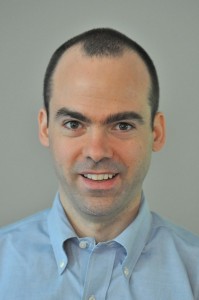 Abstract: Were you raised to believe that optimality was virtuous? Are you careful to never let your heuristic functions flirt with inadmissibility? Does greedy search leave you feeling like you need to take a shower? It’s time to let go of these outmoded notions and embrace suboptimal search with both arms! I’ll explain why I don’t like weighted A*, what’s wrong with anytime algorithms, and what I’d suggest instead.
Abstract: Were you raised to believe that optimality was virtuous? Are you careful to never let your heuristic functions flirt with inadmissibility? Does greedy search leave you feeling like you need to take a shower? It’s time to let go of these outmoded notions and embrace suboptimal search with both arms! I’ll explain why I don’t like weighted A*, what’s wrong with anytime algorithms, and what I’d suggest instead.
Short Bio: Wheeler Ruml is an Associate Professor of Computer Science at the University of New Hampshire, where he leads the UNH AI Group. Before joining UNH, he led a team at Xerox PARC that used AI planning to build the world’s fastest printer. He is a co-founder of the Symposium on Combinatorial Search (SoCS) and a co-chair of ICAPS-14.
Daniel S. Weld
Planning to Control Crowd-Sourced Workflows
Thursday, June 13 2013, 9 am, Auditorium
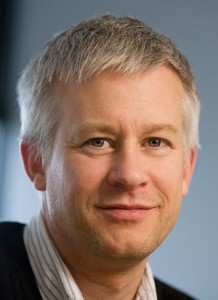 Short Bio: Daniel S. Weld is Thomas J. Cable / WRF Professor of Computer Science and Engineering at the University of Washington. Weld received a BS from Yale in 1982, a PhD from MIT in 1988, a Presidential Young Investigator’s award in 1989, an Office of Naval Research Young Investigator’s award in 1990, was named AAAI Fellow in 1999, and ACM Fellow in 2006. Weld is also an active entrepreneur with several patents and technology licenses. In May 1996, he co-founded Netbot, creator of Jango Shopping Search, later acquired by Excite. In October 1998, Weld co-founded AdRelevance, a monitoring service for internet advertising, which was acquired by Media Metrix and is now operated by Nielsen NetRatings. In June 1999, Weld co-founded data integration company Nimble Technology which was acquired by the Actuate Corporation. In January 2001, Weld joined the Madrona Venture Group as a Venture Partner and member of the Technical Advisory Board.
Short Bio: Daniel S. Weld is Thomas J. Cable / WRF Professor of Computer Science and Engineering at the University of Washington. Weld received a BS from Yale in 1982, a PhD from MIT in 1988, a Presidential Young Investigator’s award in 1989, an Office of Naval Research Young Investigator’s award in 1990, was named AAAI Fellow in 1999, and ACM Fellow in 2006. Weld is also an active entrepreneur with several patents and technology licenses. In May 1996, he co-founded Netbot, creator of Jango Shopping Search, later acquired by Excite. In October 1998, Weld co-founded AdRelevance, a monitoring service for internet advertising, which was acquired by Media Metrix and is now operated by Nielsen NetRatings. In June 1999, Weld co-founded data integration company Nimble Technology which was acquired by the Actuate Corporation. In January 2001, Weld joined the Madrona Venture Group as a Venture Partner and member of the Technical Advisory Board.Giuseppe De Giacomo
European Coordinating Committee for Artificial Intelligence (ECCAI) Invited Speaker
Linear Temporal Logics on Finite Traces: Reasoning, Verification, and Synthesis
Friday, June 14 2013, 9 am, Auditorium
Abstract: In this talk we look into the impact of expressing temporal constraints on traces/trajectories that are finite, as typical in planning (see TLPlan or PDDL3). This assumption has been considered a sort of accident in much of the AI literature, and standard temporal logics (on infinite traces) have been hacked to fit this assumption. Instead, we survey the known results on expressing temporal constraints on finite traces, by reconstructing and integrating results coming from different field of CS. We show that standard Linear Time Logic interpreted on finite traces (LTLf) is less expressive than what might appear at first sight, and that at essentially no computational cost one can make a significant increase in expressiveness while maintaining the same intuitiveness of LTLf. We focus on three basic tasks: satisfiability, verification, and synthesis. For the latter we show that very general techniques exists, and that these are essentially based on a sort of goal reachability, as in most forms of planning. (Joint work with Moshe Y. Vardi, Rice Univ., USA)
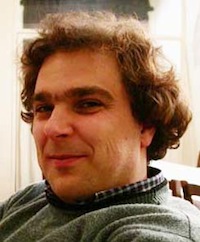
Short Bio: Giuseppe De Giacomo is a professor at Sapienza Universita’ di Roma. He has contributed to diverse areas of AI and CS. He has contributed deeply in Reasoning about Actions. He profoundly influenced the definition of ConGolog and its successor IndiGolog, which are among the best known formalisms for expressing high-level robot programs. He has a strong interest in nonstandard forms of Planning, and he was among the very first researchers to look into Planning for temporal extended goals on infinite traces. He has been relating several advanced forms of Planning in AI to automated process synthesis in CS. Building on insights from Reasoning about Actions and Planning, he devised one of the best known formal approaches for service composition, the so-called “Roman Model”, which has been further developed in AI for behavior composition synthesis of devices and agents. He contributed in several other areas of AI and CS, in particular, he provided key results in Description Logics, Ontology-based Data Access, Data Integration in Databases, and recently on artifact-based business processes, showing the decidability of verification and synthesis in infinite state data-aware systems.



